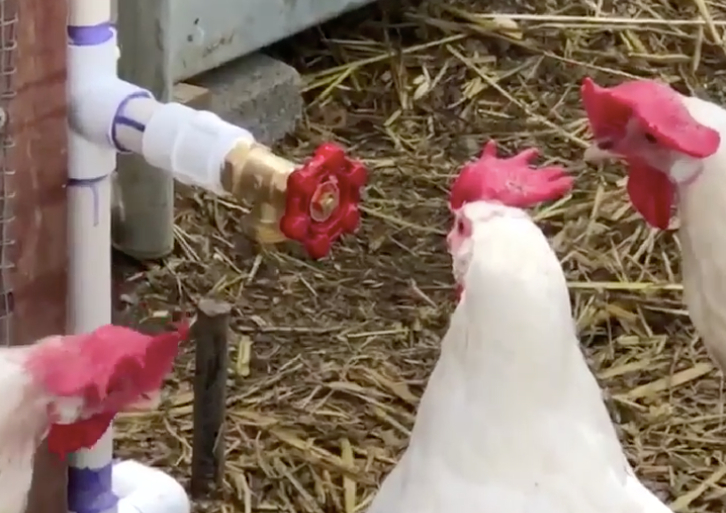Onwards and upwards. Continuing from my post yesterday, here are 3 more ways to create and amplify curiosity:
4 Flaunt the velvet pouch
When it comes to copywriting, the method of the velvet pouch is possibly the sexiest, most effective, and most profitable way to create curiosity. It certainly seems to be very prevalent on the Internet today, particularly in long-form sales letters and VSLs.
In many ways, the velvet pouch idea is a combination of several of the techniques from yesterday’s post. But I also feel like this method is tapping into human psychology on some unique, fundamental level, and that’s why I decided to include it on its own.
I found out about the velvet pouch technique from Michael Masterson’s and John Forde’s Great Leads. Here is the relevant section from the book, which is talking about lesson from a door-to-door salesman named Harry:
After gaining admittance to the apartment, Harry would start his pitch about the quality of our cookware, taking out the pots and pans individually from the case. But they were each encased in plush, royal blue velvet pouches. As Harry described the features and benefits of the cookware, he would gently massage the pots, first from outside over the velvet pouches, and then by slipping his hands inside them but still keeping them hidden from the prospect.
“Just keep your eye on the customer,” he told me. “In the beginning they’ll be looking at you. But as you go on, you’ll notice that they will shift their focus to the pots and pans. That lets you know they are getting interested. Keep hitting them with the benefits while they stare at what you’re doing. And never, ever tkae the pots out until you know they have the prospects’ full attention.”
Masterson and Forde use this story to kick off their chapter on what they call the secret lead. In other words, the velvet pouch is all about the mystery and intrigue that builds up when a secret is hovering around in the air.
In some ways, this is similar to a combination of the open loop and the teasing from yesterday. But like I said, there also seems to be a fundamental human hunger for secrets, even if they aren’t clearly associated with any benefits. I think that also explains why “secret” and “mystery” are marketing power words that can in many ways make a headline on their own.
By the way, I think trying to disqualify yourself (or what you’re offering) can sometimes work in the same way as a secret. Once something is taken off the table, people suddenly become more intrigued by it. That’s why I think the start of my post from two days ago is in some ways also a secret lead:
Fair warning: the following post contains some sexual, politically incorrect references. It might offend some people.
It’s ok to click away. But if you insist on reading, here goes:
5 Be different
6 Be new/Share news

The new kid on the block
When Gary Halbert died, Gary Bencivenga wrote a post explaining why Gary H.’s newsletters were so interesting. The number one thing, according to Gary B.?
1. Gary shared news. Sometimes he was the news, sometimes it was a dramatic turn of events in his tumultuous life, but often enough, he shared news of a technique or strategy that would make your response and profits soar. You couldn’t afford to miss even one of these gems, so you had to open every issue.
Many times, being new is sufficient unto itself, even if there’s no implied benefit, and not even anything clearly different. Novelty seems to directly tap into human psychology. Remember being in elementary school when a new kid appeared in class? Like in the photo above, that new kid was automatically interesting, at least for a while.
About number 5 above…
I tried to be different with the “be different” section above, so I didn’t expand on it at all. Maybe I should have just left it at that, because being different can be pretty straightforward. Still, here are a few examples:
First off, there’s the picture from yesterday’s post: “WORLD’S ONLY FEATURE DANCER WITH 3 BOOBS.” Is it a benefit? Hardly. A secret? Not at all. Just morbid fascination and curiosity with something different.
Second, there’s the story I started with two days ago, about a guy named Yad sleeping with a girl only a few hours after meeting her — just because he was different enough from other guys to make her very curious.
Finally, a copywriting example from my own essential oils list. At one point, I was promoting an online video series about longevity. The promise of the series was “How to live to a happy and healthy old age.”
That’s a fine benefit, but everyone is already pushing the same. So I simply switched it around to be different. I retold an ancient Greek myth about a Trojan prince who gets eternal life but not eternal youth, and how it turns out to be a curse rather than a blessing. The subject line for this inspiring email: “How to reach a frail and unhappy old age.” It worked pretty well.
